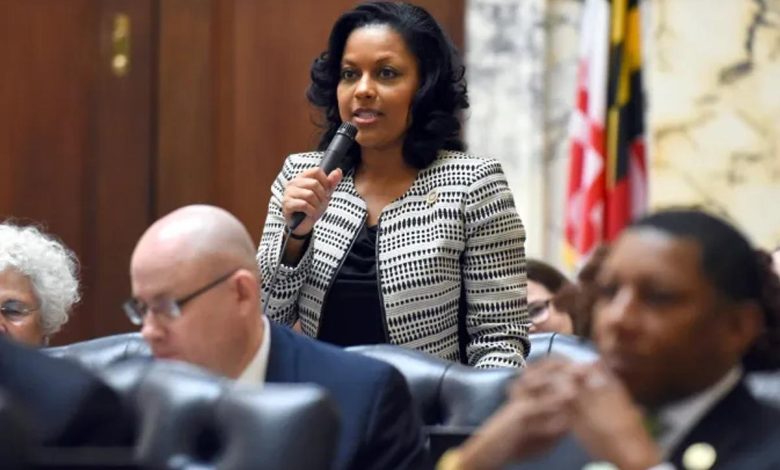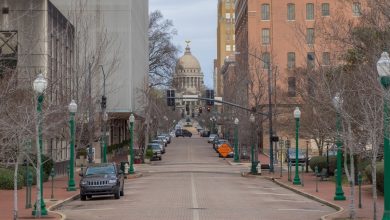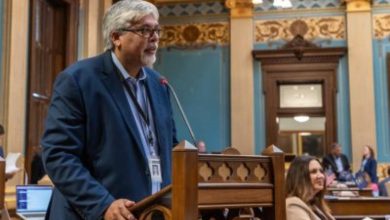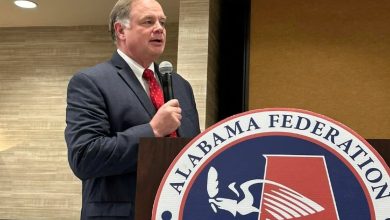Maryland iGaming Lifeless for 2024 After Senate Folds on Measure

The Maryland iGaming invoice handed by the state Home of Delegates final month has died within the Basic Meeting’s higher chamber.
Maryland Del. Vanessa Atterbeary wished to convey on-line on line casino gaming to the state. Her 2024 invoice handed the state Home however stalled within the Senate. (Picture: The Baltimore Solar)
Home Invoice 1319 was launched in February by Del. Vanessa Atterbeary (D-Howard). The statute sought to broaden gaming in Maryland to incorporate on-line slot machines and interactive desk video games.
Atterbeary’s invoice handed by a 92-43 vote, largely alongside celebration traces, with Democratic delegates extra supportive of the iGaming initiative. The state Senate, additionally a Democratic stronghold with the celebration sustaining 34 of the 47 seats, opted to forego contemplating gaming enlargement this legislative session.
After fielding HB 1319, Senate management directed the invoice to the Funds and Taxation Committee. It acquired a listening to on March 26 however committee members determined to not vote on advancing the statute.
With the Basic Meeting’s 2024 legislative session ending on Monday, and no additional consideration of HB 1319 deliberate, the iGaming effort is lifeless.
iGaming Shunned
Atterbeary and different iGaming supporters believed on-line on line casino video games might present additional funding for the Maryland Blueprint.
Handed in 2021, the Blueprint for Maryland’s Future is designed “to rework public schooling” to enhance education, “particularly for individuals who have been traditionally underserved.”
Maryland’s tax profit from its six brick-and-mortar casinos goes towards the Maryland Schooling Belief Fund, which helps pre-Okay via 12 public schooling, public faculty and higher-education infrastructure, and capital enhancements to neighborhood faculties. Sports activities betting taxes help the Blueprint.
Senate leaders advised Atterbeary and different Home lawmakers campaigning for iGaming that the difficulty could be lifeless on arrival within the higher chamber. Senators stated 2024 wasn’t the 12 months for extra gaming, and earlier this 12 months folded on comparable iGaming laws filed by state Sen. Ron Watson (D-Prince George).
Atterbeary’s invoice would have allowed the state’s casinos to associate with as much as three iGaming platforms. Maryland’s 4 off-track betting and two bingo places would have certified for a single pores and skin.
Media conglomerate City One would have been allotted one iGaming license, and 5 others would have been put up for a aggressive bid. Every license was to price $1 million and gross income would have been taxed at 55%.
Marylanders would have had the ultimate say on HB 1319, because the laws required a poll referendum to amend the state structure to allow on-line on line casino playing. Being a legislative-initiated poll proposal, the invoice wanted three-fifths help in every meeting chamber.
Public Pushback
Together with the state Senate, a ballot commissioned in February decided {that a} majority of the general public in Maryland opposed on-line on line casino gaming.
The probe concluded that 64% of Marylanders don’t need iGaming at this juncture. It’s value noting that whereas the ballot was performed by an impartial public coverage polling agency primarily based in Raleigh, it was commissioned by the Maryland Retailers Alliance, which is strongly against iGaming.
The state’s casinos are additionally in opposition to increasing on line casino gaming to the web. The six casinos final 12 months generated gross gaming income (GGR) of $1.98 billion, a 3.3% decline from 2022.
MGM Nationwide Harbor, the state’s market chief and some of the worthwhile casinos within the nation exterior of Las Vegas, noticed its GGR drop almost 6% to $834.1 million.





